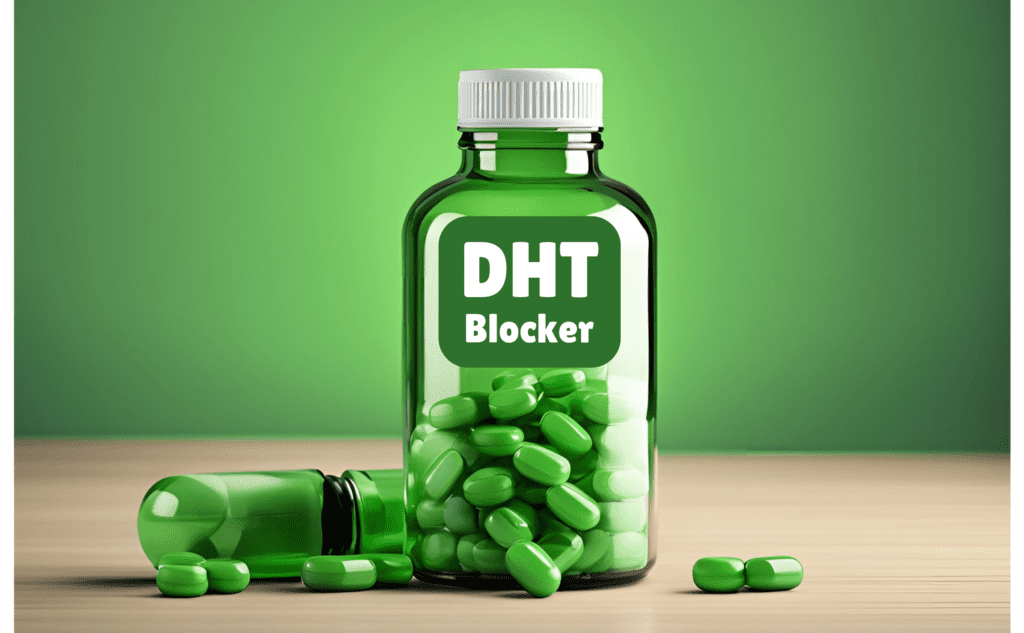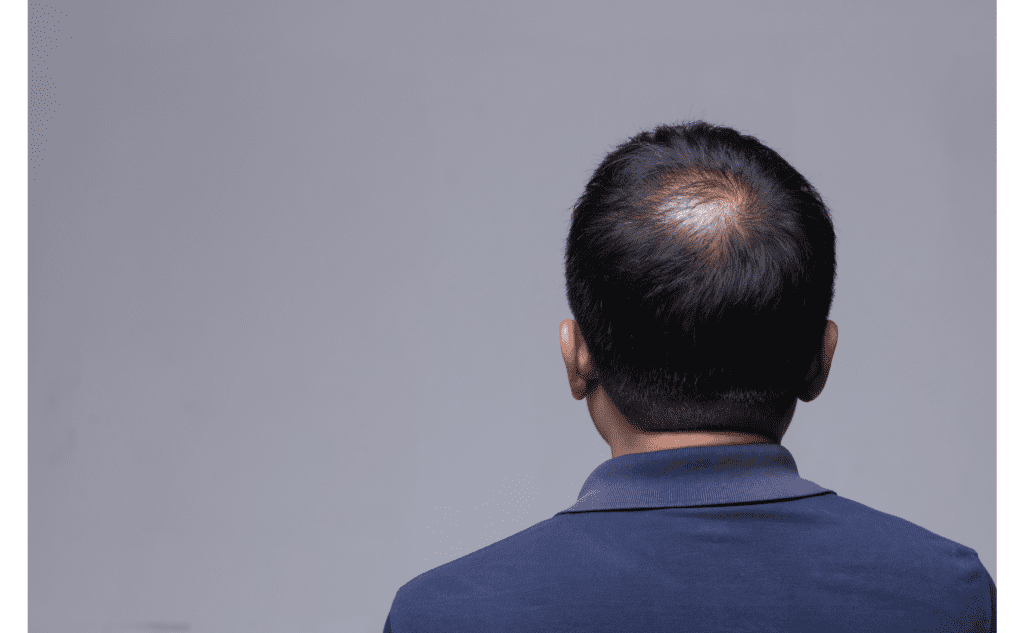DHT Blocker : 4 Ultimate Benefits

In the quest for healthy hair growth, many individuals turn to DHT blockers as a solution for combating hair loss. But what exactly are these and how can they help you maintain a full head of hair? In this comprehensive guide, we’ll dive into the science behind DHT blockers, explore their benefits, and provide practical advice on incorporating them into your hair care routine.
Understanding DHT and Its Role In Hair Loss

A powerful androgen hormone produced from testosterone is called dihydrotestosterone (DHT). It plays a crucial role in the development of male characteristics but can also be a significant factor in hair loss, especially in conditions like androgenetic alopecia (male and female pattern baldness). DHT binds to androgen receptors in hair follicles, leading to their miniaturization and eventual hair thinning.
What are DHT Blockers?
DHT blockers are substances designed to inhibit the conversion of testosterone into DHT. By reducing DHT levels, these blockers help prevent hair follicles from shrinking and can potentially reverse hair thinning. DHT blockers can be found in various forms, including prescription medications, natural supplements, and topical treatments.
Popular DHT Blockers
- Finasteride (Propecia): Finasteride is a well-known prescription medication that inhibits the enzyme 5-alpha reductase, responsible for converting testosterone into DHT. Clinical studies have shown that finasteride can effectively reduce hair loss and promote hair regrowth in many individuals.
- Dutasteride (Avodart): Similar to finasteride, dutasteride also targets the 5-alpha reductase enzyme but is known for its broader inhibition of both type I and type II isoforms of the enzyme. This makes it a powerful option for those who have not responded well to finasteride.
- Natural DHT Blockers: Several natural ingredients are believed to have DHT-blocking properties. These include saw palmetto, pygeum bark extract, and stinging nettle. While the scientific evidence supporting their effectiveness is less robust compared to prescription medications, many people use these supplements as a complementary approach.
- Topical Treatments: Some topical treatments and shampoos are formulated with DHT-blocking ingredients. These products are applied directly to the scalp and may help reduce DHT levels locally, improving the overall health of the hair follicles.
Benefits of Using DHT Blockers

- Reduced Hair Loss: The primary benefit of DHT blockers is their ability to slow down or halt hair loss by targeting the root cause—DHT. This can lead to a noticeable improvement in hair density and thickness.
- Improved Hair Growth: For many users, DHT blockers not only prevent further hair loss but also promote new hair growth. This can be particularly beneficial for those in the early stages of hair thinning.
- Increased Confidence: Hair loss can significantly impact self-esteem and confidence. By addressing the issue with DHT blockers, individuals often experience a boost in their confidence and overall well-being.
- Comprehensive Hair Care: When combined with other hair care practices, such as a balanced diet and proper scalp care, DHT blockers can contribute to a more holistic approach to hair health.
Considerations and Potential Side Effects

While DHT blockers can be effective, it’s important to be aware of potential side effects. Prescription medications like finasteride and dutasteride may cause issues such as decreased libido, erectile dysfunction, and mood changes. Natural supplements generally have fewer side effects, but their efficacy can vary. Before starting any DHT blocker, it’s advisable to consult with a healthcare professional to determine the most suitable option for your needs and to discuss any potential risks.
Conclusion
DHT blockers represent a promising solution for those struggling with hair loss due to elevated levels of dihydrotestosterone. By understanding how these blockers work and the benefits they offer, you can make informed decisions about incorporating them into your hair care regimen. Whether you opt for prescription medications, natural supplements, or topical treatments, the key is to choose a method that aligns with your specific needs and lifestyle.
For personalized advice and treatment plans, always consult with a healthcare provider to ensure the best approach for maintaining and improving your hair health.
Feel free to share your experiences or ask any questions in the comments below!












